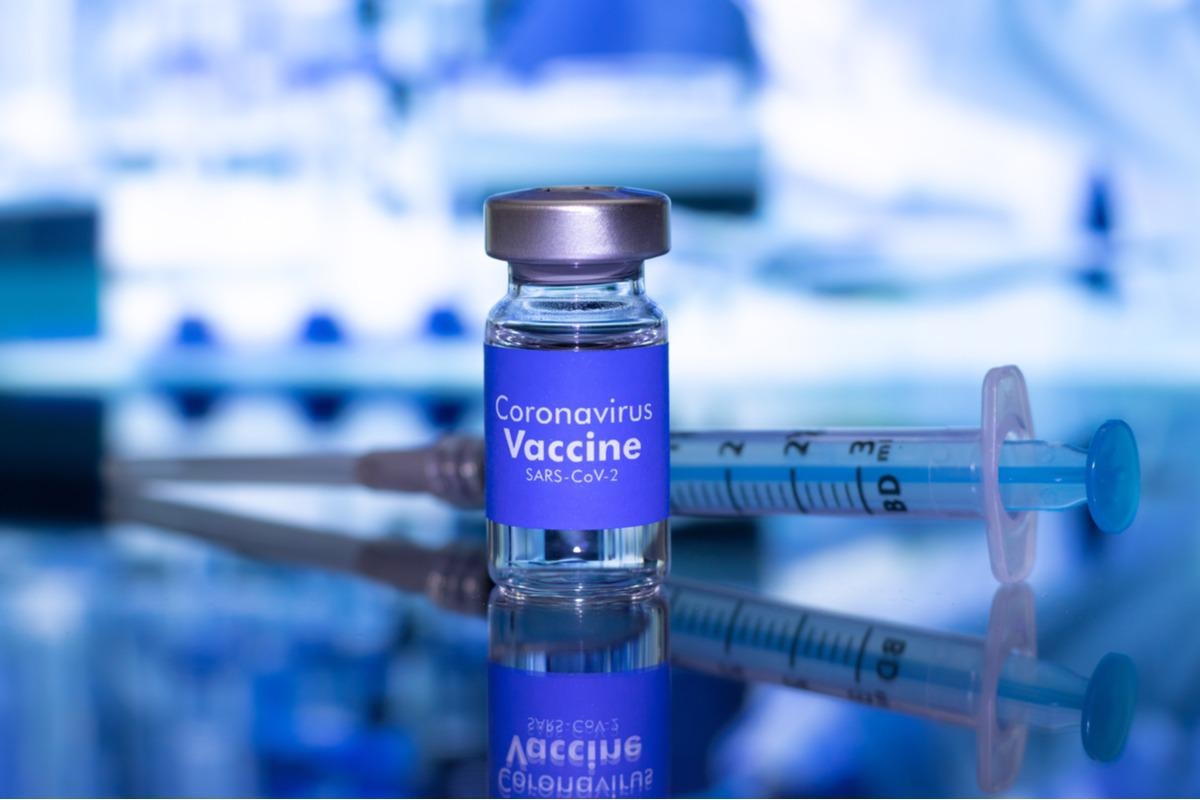The severe acute respiratory syndrome coronavirus 2 (SARS-CoV-2) pandemic has adversely affected public health globally, with many countries imposing nationwide lockdowns to curb the transmission of SARS-CoV-2 that hampered their economies.
 Study: A modified porous silicon microparticle promotes mucosal delivery of SARS-CoV-2 antigen and induction of potent and durable systemic and mucosal T helper 1 skewed protective immunity. Image Credit: adrianosiker.com/Shutterstock
Study: A modified porous silicon microparticle promotes mucosal delivery of SARS-CoV-2 antigen and induction of potent and durable systemic and mucosal T helper 1 skewed protective immunity. Image Credit: adrianosiker.com/Shutterstock

 This news article was a review of a preliminary scientific report that had not undergone peer-review at the time of publication. Since its initial publication, the scientific report has now been peer reviewed and accepted for publication in a Scientific Journal. Links to the preliminary and peer-reviewed reports are available in the Sources section at the bottom of this article. View Sources
This news article was a review of a preliminary scientific report that had not undergone peer-review at the time of publication. Since its initial publication, the scientific report has now been peer reviewed and accepted for publication in a Scientific Journal. Links to the preliminary and peer-reviewed reports are available in the Sources section at the bottom of this article. View Sources
SARS-CoV-2 belongs to the Coronaviridae family and comprises a single-stranded positive-sense RNA genome. Since the emergence of the pandemic, various novel variants of concerns have been identified to be associated with increased viral transmission and disease severity in coronavirus disease 2019 (COVID-19) patients in the UK, South Africa, Brazil, the United States, and India. SARS-CoV-2 utilizes its spike (S) protein, which interacts with the human angiotensin-converting enzyme 2 (hACE2) through its receptor-binding domain (RBD) and enters the target cells.
Both the T cell epitope containing S protein and the RBD have been considered the main targets for vaccine development due to their ability to stimulate highly potent neutralizing antibodies (NAbs). Various vaccines such as DNA, mRNA, viral vectored, live-attenuated, and subunit vaccines have been developed to combat the pandemic.
However, the emergence of more infectious viral variants and waning immunity post-vaccination have posed new challenges for the global vaccine efficiency efforts. Hence, developing vaccines with potent, long-lasting, and cross-reactive protection against emerging SARS-CoV-2 variants remains a high priority.
About the study
In a pre-print study published in the bioRxiv* server, the authors investigated the immunogenicity of a novel adjuvant comprised of a modified porous silicon microparticle (mPSM) for the SARS-CoV-2 S protein RBD subunit vaccine (mPSM-RBD). The S RBD domain was expressed and purified by cloning the DNA fragment encoding amino acid residues 319 to 541 of SARS-CoV-2 S protein into the lentivirus vector pCDH-CMV-MCS-EF1α-RFP, which was then used to transduce 293FT cells.
The first 19 residues of the S protein and a hexahistidine (6xHis) tag were fused at the N-terminal as a secretion signal and the C-terminal, respectively, which enabled the secretion and purification of the protein. The protein antigen was packaged into mPSM to prepare a SARS-CoV-2 RBD subunit vaccine (mPSM-RBD).
The authors treated the bone marrow-derived DCs (BMDCs) isolated from BALB/c mice with PBS (mock), RBD alone, or together with either alum or mPSM and analyzed the effects of mPSM-RBD on DC activation and antigen presentation. The authors evaluated the protective efficacy of the mPSM-RBD vaccine against SARS-CoV-2 infection in animal models. PSMs help maintain a sustained release of proteins and peptide antigens inside the dendritic cell (DC) by acting as a carrier and a reservoir.
Findings
The study reported that compared to alum-RBD, the mPSM-RBD vaccine triggers more potent, and durable systematic type 1 helper (Th1)-prone immune responses upon parenteral vaccination in mice and also protects mice against SARS-CoV-2 Beta variant infection. Therefore, the study suggested that the mPSM serves as a potent and safe adjuvant for the SARS-CoV-2 RBD subunit vaccine.
The study data showed that the mPSM-RBD vaccine triggered more durable and stronger immunity against SARS-CoV-2 and Beta variant infection than the alum-RBD vaccine post single or two doses of parenteral vaccination. Furthermore, the mPSM stimulates nasal and airway epithelial cells uptake of SARS-CoV-2 RBD antigen, which triggers higher levels of SARS-CoV-2-specific mucosal immune responses against SARS-CoV-2 Delta variant infection.
Also, the amount of virus-specific T cells in the lung is directly related to better prophylaxis of COVID-19 patients. Since mucosal vaccination enhances lung resident memory T cells, it is considered more effective in controlling the virus than the parenteral injection. Additionally, when compared with the mock group, the mPSM RBD-vaccinated mice showed significantly reduced levels of inflammatory cytokines in the lung.
Conclusion
In conclusion, the study results demonstrated that mPSM is a potent adjuvant for the SARS-CoV-2 subunit vaccine and facilitates intranasal delivery that triggers robust systemic and mucosal immunity. According to the authors, the mPSM-based platform is a novel tool for vaccine development to fight against SARS-CoV-2 and other emerging RNA viruses or infectious pathogens that rely on Th1-mediated immunity.
Our results showed that the mPSM-RBD vaccine induced potent and durable Th-1 prone immune responses and protected mice from SARS-CoV-2, Beta and Delta variants infection.”

 This news article was a review of a preliminary scientific report that had not undergone peer-review at the time of publication. Since its initial publication, the scientific report has now been peer reviewed and accepted for publication in a Scientific Journal. Links to the preliminary and peer-reviewed reports are available in the Sources section at the bottom of this article. View Sources
This news article was a review of a preliminary scientific report that had not undergone peer-review at the time of publication. Since its initial publication, the scientific report has now been peer reviewed and accepted for publication in a Scientific Journal. Links to the preliminary and peer-reviewed reports are available in the Sources section at the bottom of this article. View Sources